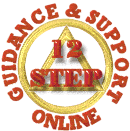The Problem That Comes After Your Drinking Problem
It was only after I walked away from alcohol that people thought I needed help
I finally stopped using the addictive, carcinogenic drug ethanol, known by its street name alcohol, three months ago.
I’m not counting the days anymore. Not really. Because that would be the same as counting the days of the rest of my life. But still, I know it’s been three months, and I’m ready to start talking about it.
I don’t expect a congratulations, at least not from people who still drink regularly. When I was drinking I wouldn’t have congratulated you, either.
I expect something more like crickets. Crickets, plus awkward silence. Awkward silence, followed by awkward questions, questions like:
Why in the world would you do that?
Surely, you’re not one of them?
Not, you know, an alcoholic?
Well, no, I don’t think so. In truth, I don’t find that word particularly useful, and as such, I don’t identify with it. The term “alcoholic” places the problem within the person, not within the nature of the drug. Thinking that I was the problem is what kept me stuck, hooked on alcohol, long after I wanted to be free.
The term “alcoholic” places the problem within the person, not within the nature of the drug.
What I am is a 37-year-old woman who, in the prime of my life, found myself addicted. By addicted, I mean that I found myself needing to use this substance almost every night of the week in order to feel okay. I found myself needing to use this substance even though I didn’t want to anymore, even though I knew it was harming me and my otherwise good life — hurting my sleep, health, energy, creativity, clarity, and connection to myself and others. Even at a volume most people were happy to normalize (i.e., two drinks on weeknights, more on weekends), I knew that alcohol was bad for me. And because the drug is scientifically known to be addictive, and because I wanted to stop but for a long time found it nearly impossible to do so, I call this addiction.
On the subject of labels, neither do I identify as an “addict” or a “recovering addict.” I did not describe myself with these deficit terms after I quit smoking, and I don’t apply them to the regular “moderate” social and anti-social drinking I used to do. But I did get hooked on alcohol, through culturally encouraged, repeat exposures. You see, addiction to addictive drugs can happen to anyone. Case in point: the opioid epidemic. That’s why we warn our kids away from the “hard” drugs. That’s why we say, “Don’t even experiment with them. It’s just not worth the risk.”
But the ubiquitous addictive drug alcohol? Of that we say, “Cheers!” Of that we say, “Enjoy responsibly.” We advertise on billboards, television programs, and store windows. We celebrate this drug and tell people to abstain only when they drive or get pregnant.
I didn’t stop drinking in AA. I realize that the program is helpful to some, but after giving it a try, it wasn’t for me. Ultimately, I wanted a way out of what Allen Carr calls “the alcohol trap” that didn’t require me to organize my life around the fact that I used to be addicted to alcohol. I wanted to leave that seemingly endless drinking chapter behind. I wanted to move forward.
It’s nice that people can do this, isn’t it? It’s nice that we can change and grow.
Unfortunately, society doesn’t see it this way. With drinking, it was only after I told people I was trying to stop drinking, trying to make a healthy change, that people told me I must have a Real Problem. Maybe I was even An Alcoholic.
Can you imagine happily telling your friends and family that you’ve decided to embrace an active lifestyle and are now exercising regularly instead of watching TV and eating McDonalds, and then they label you as a lifelong Couch-aholic with a Real Problem?
So if I didn’t stop drinking in a program, how did I do it? Well, ultimately I just stopped drinking. I saw the dark deceptive forest for the trees and walked the hell away from there. But first, there was a lot of reading, and agonizing in my journal, and even a shame-riddled anonymous blog for a little while. There were dietary changes and failed commitments to health regimens, expensive essential oils and late night talks and broken promises to myself. I tried sober chat rooms and followed sober bloggers. I shared my growing concern with trusted people who invalidated my concern, including my therapist who kindly said, “Sometimes a glass of wine is an act of self-compassion.”
Since I had a drinking problem, I searched high and low for the source of my problem. If there’s one thing I know from being a therapist, it’s that it’s important to ask the right questions. Questions provide a direction for inquiry, and inquiry, if properly directed, can reveal useful information, information that helps us resolve our problems.
“What is wrong with me?” I’d wonder. “What is so hard about quitting something I know is bad for me, that I know isn’t doing me any favors? I was able to do it with cigarettes, which ensnared me every bit as much as alcohol, so why can’t I just stop drinking for good? Am I just a weak person? What’s my problem?”
I looked deep within, to my traumas and my pain, to my fears and doubts and deficits, to my flaws and my shame. Why did I let this happen to me? How did I become a person who needs a couple-few drinks a night? Where did I go wrong? Why can’t I figure this out? What personal work do I need to add to a life already devoted to personal work to get free from my alcohol problem? I looked inward, inward, inward for the problem, the issue, the missing piece. Surely this line of inquiry would give me the key to solving my problem.
When I did dare glance outward, I saw that most people were happily drinking. Desperate, I attended several AA meetings. Kind souls, but not for me. Still, I tried. I made lists about how everything bad that had happened in my life was somehow my responsibility. I blamed myself and begged a god I don’t believe in to help me, and I looked long and hard for what was so wrong with me that I had gradually grown addicted to the addictive drug alcohol.
Women are so good at blaming ourselves. We hold ourselves to impossibly high standards, ones we’re constantly falling short of. It’s no wonder that when we find ourselves addicted to an addictive drug (alcohol), we blame ourselves. Naturally.
As women we are supposed to raise beautiful, brilliant kids while working full-time jobs, cooking healthful “balanced” meals, getting our nails painted and eyebrows waxed, having “girl time” and “me time” and “sexy time,” going to the gym 3-4 days a week (but 4-5 is better), getting a full 8-9 hours of sleep, and doing it all over again day after day, with perfect make-up and a little left over to pour into our own creative pursuits. It’s no wonder we blame ourselves when the only thing we find ourselves pouring is more wine, beer, and liquor. Surely this must also be our fault, right? Surely we failed to understand the instructions. We failed to balance. We failed to moderate.
This self-blame model is exactly what I had to reject in order to find my key out of the hell that is alcohol addiction. Maybe you have a different key, and that’s great. Maybe each of us has to cut our own key, tailor-made to our own idiosyncrasies and world views. Maybe your key is a recovery program; if so, congratulations to you! Freedom is freedom, whatever roads we take to get there.
Here’s my key: I had to completely reject the notion that alcohol addiction was my fault. I had to reject this with every fiber of my female being. There are many things in life that may be my fault, but finding myself addicted to a highly addictive, widely celebrated drug I have been encouraged to use since adolescence in order to signal to the social herd that I am mature, healthy, attractive, successful, sophisticated, and friendly is not one of them.
It bears repeating: I completely and entirely blame alcohol (and the alcohol industry) for my addiction to alcohol.
I realize this sounds simple, too simple, maybe even stupidly simple. I realize we live in a culture where people who stop drinking alcohol are told that this means we now must join lifetime support groups and call ourselves “alcoholics in recovery” for the rest of our sober lives, and avoid drinky social gatherings and pray for rescue and walk around feeling just a little bit sad that we are different, that we can’t enjoy the party because we went too far and lost our alcohol rights and privileges. But this I know: alcohol caused my alcohol addiction, in exactly the same way that cigarettes caused my cigarette addiction, both coming between me and everything they falsely promised to make me.
Many years ago, when I finally quit smoking cigarettes, I had every reason to believe that no one would question my decision. I had no need for group support to quit smoking because the group — my friends and family and most of society — didn’t smoke. Medical professionals too agreed that smoking was unequivocally bad for health, and public campaigns encouraged people to “put it out.” Everywhere I looked I saw messages like,“It might be hard at first, but you can do this. You can leave this behind.” I found countless websites devoted to all the positive health changes that started as soon I put out my last cigarette. Group support was everywhere, part of the social fabric of my very world. I certainly didn’t worry that if I told people I’d finally stopped smoking, they would then give me a stigmatizing label and tell me I had to forever rely on group support if I hoped to, god willing, remain a nonsmoker. No one in my social circle cautioned me at three months without cigarettes to be careful, to be humble. No one told me I shouldn’t try to go it alone, or that it was “early days,” so it was best not to talk about it. Instead, when I finally said, “I am really done now,” we all started inhaling more deeply. In other words, that was that. Welcome back to the herd.
But when we stop using alcohol, or acknowledge that we are even thinking about stopping, we get a different message from the mainstream. Crickets, followed by awkward questions. Friends and family look at us funny, ask us why we don’t just “cut back a little.” Therapists ask if it’s really gotten “that bad.” Otherwise caring colleagues say things like, “But how will you have fun at parties?”
Because, at least for now, to quit drinking is to most definitely leave the herd. Sure, besides AA there are a few smaller, quieter, loosely organized herds of non-drinkers that I like to think of as “early adopters,” standing around the edges enjoying life with La Croix, but look around on any regular day and you’ll be quickly reminded that to become a contented non-drinker in our booze-soaked culture is practically an act of tribal treason.
I blame alcohol for my drinking problem, and blaming alcohol proved the key to my exit from addiction. When I saw clearly that alcohol had created the problem, created the need for itself and then progressively undermined my confidence, health, energy, and capacity for self-disciplined direction, I gathered up all my accumulated insight, put down the damn bottle, and walked away from the herd.
We are herd animals, so it can be scary to leave. (Will my friends still like me? Will I still be invited to parties?) As I walked away, I had to tell myself gently, over and over, that it’s okay to leave the herd on this issue. The herd will catch up eventually. The science is ever more clearly demonstrating that alcohol is extremely dangerous for women’s health (not so great for men, either, btw). Just Google “women,” “alcohol,” and “breast cancer.”
Yeah, I know, right? Yikes.
Call it recovery, sobriety, call it being alcohol free by choice. Whatever you call it — whatever I call it — matters not. As the Buddha is credited with saying, “See for yourself what brings contentment, clarity and peace. That is the path for you to follow.”
With alcohol out of the picture, I’m no longer chasing the red herring of “my” drinking problem. The drink was the problem. Of course I have other life problems; that is a given. But it’s much easier to deal with them now. Like so many sobriety writers — Annie Grace, Laura McKowen, Jason Vale, Kristi Coulter, Lotta Dan, Jean McCarthy, Holly Whitaker — have been trying to tell us, there are inevitable downsides to life, but no downsides to becoming a non-drinker.
The alcohol industry benefits when we blame ourselves for developing an addiction to alcohol (Rosé all day, anyone?). Were women to direct our collective self-blame toward the true culprit, we might have a winning class action lawsuit on our sober, capable hands.
WRITTEN BY
Sara Nash is a mom, therapist, painter, and writer who has been happily sober since May 2018. Find her at thecounselorasaperson.com and saranash.com.



